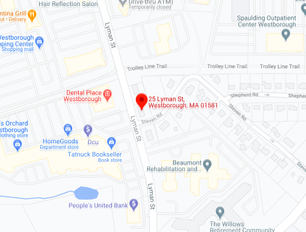Navigating Mental Health Support During a Crisis: What You Need to Know By Kerrie Toole, LICSW, Executive Director
As September marks National Suicide Prevention Month, it’s a meaningful time to reflect on the resources available when we or someone we care about faces a mental health crisis. While many people are familiar with emergency numbers like 911, 988, or the Samaritans hotline, there are also other, often more accessible, options for getting help right in your community. Today, I want to walk through what you can expect when seeking emergency mental health services, so that if the time comes, you feel informed and supported. Resources You Can Turn to in a Crisis For those in Massachusetts, the Massachusetts Behavioral Health Help Line offers real-time support 24/7. Whether you prefer to call or text, help is just a moment away at 833-773-2445. Additionally, Community Behavioral Health Centers (CBHCs) provide 24/7 walk-in services, as well as mobile services, meaning they can come to your home or another location if that’s where you feel safest. You can find more details about these services here. If you're local to the Metrowest area of Massachusetts, there are several Emergency Service Provider (ESP) agencies that can conduct emergency assessments and provide care without needing to go to the emergency room. In some cases, these agencies are also the ones conducting evaluations if you do go to the ER. Here's a quick guide to some of these providers:
What Happens During an Emergency Mental Health Evaluation Whether you’re evaluated in an emergency room, at a CBHC, or through an ESP agency, the process is quite similar and designed with care and thoroughness in mind. A trained clinician will meet with you—and any supportive person you have with you—to assess the situation. They’ll look at both risk and safety factors and, with your permission, may gather additional information from any mental health providers you’re currently seeing. Once the clinician has all the necessary information, they’ll consult with a team of professionals to determine the most appropriate level of care for you. This could be anything from a referral for outpatient services to inpatient hospitalization. If you're in an emergency room, there will be an added step of a medical evaluation to ensure there are no underlying physical issues that need attention. Understanding Your Care Options After an evaluation, the agency will help you access the right level of care. Here’s a breakdown of what that could look like:
You May Not Need to Go to the Emergency Room In many cases, you can access these services without stepping foot in an emergency room. By reaching out directly to your local ESP or CBHC, you can get the help you need in a more familiar, less overwhelming environment. Navigating a mental health crisis can be a deeply personal and often overwhelming experience, but knowing what to expect and who to call can make all the difference. Whether it's through a quick text, a phone call, or a walk-in appointment, support is available—and it’s closer than you might think. If you or someone you know is struggling, don’t hesitate to reach out. There’s help, hope, and people ready to stand by your side. Comments are closed.
|
Archives
May 2025
Categories |
Mission Statement
Castlebrook Counseling Services, Inc. is a group of private practice clinicians with a shared goal of strengthening our community by providing therapy and clinical support designed for children, adults, and families to successfully meet life’s challenges.
 RSS Feed
RSS Feed

